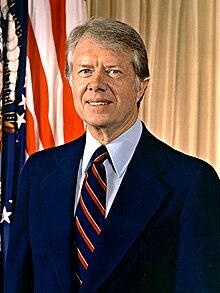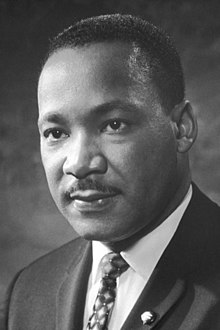Hurley Goodall
Hurley Charles Goodall Jr. (May 23, 1927 – May 12, 2021) was an American author, historian, and politician who served in the Indiana House of Representatives from the 38th district as a member of the Democratic Party from 1978 to 1992.
Prior to his tenure in the state legislature he was active in local politics and served on the school board in Muncie, Indiana.
Goodall was born in Muncie, and his family relied on welfare due to the death of his father and his brother's polio.
During his tenure in the state house he was a ranking member on the Labor and Public Safety committees, and served as the assistant Democratic floor leader.
He aided in the foundation of the Indiana Black Legislative Caucus and served as its first chair until his retirement from the state house.
During his life he authored multiple books on black history and worked on the editorial board of The Star Press before his death in 2021.
[10][11][12] Goodall was appointed to the Human Rights Commission by Mayor John Hampton in 1966, and served until he declined to be reappointed in 1969.
Goodall was unable to take the position as he held another city job, working for the fire department, and would not be eligible for retirement until January 1978.
[16][17] Goodall announced on February 13, 1970, that he would run for one of two seats on the Muncie Community School board against incumbents Jack Peckinpaugh and J. Wesley Wray.
[37] In 1987, he and Ruth Dorer, a Delaware County councilor, were selected to co-chair the precinct coordinating committee for James P. Carey's mayoral election campaign.
[61] He served as a temporary member on the credential, platform, and rules committees at the 1988 Democratic National Convention.
[62][63] He served as the chair of the Indiana Coalition for Better Government, an organization that came from the Black Political Caucus that was founded by supporters of Jackson's presidential campaign.
[66] During the 1978 election Goodall filed to run for the Democratic nomination for a seat in the Indiana House of Representatives from the 38th district which was seventy-five percent white.
[67][68] Voisard announced that he would not seek reelection after Goodall filed and he endorsed Larry Dotson, who served as his campaign treasurer during the 1976 election, to succeed him.
[71] He defeated Dotson and Doug Collins in the primary and American Party nominee June Osterman in the general election.
[72][73][74] The Republicans chose to not run a candidate as they believed that an uncontested race would reduce the black vote in other elections.
J. C. Williams attempted to run with the Republican nomination, but ended his campaign after he was told that he wouldn't receive support from the party.
[101][102] Goodall announced on November 25, 1991, that he would not seek reelection and Republican nominee Frederick Wenger was elected to succeed him.
[105] During Goodall's tenure in the state house he served on the Cities and Towns, Election and Apportionment, Labor, Public Safety, and Financial Institutions committees.
[116] Goodall was selected to serve as the first chair of the Indiana Caucus of Black Democratic Elected Officials in 1980.
[124] His autobiography, Inside the House: My Years in the Indiana Legislature, was released in 1995, and he later published Voices from the Past, a book about the lives of former slaves, in 2000.
[125][126][127] He worked as a visiting scholar to Ball State University and was selected to serve for three months as the first citizens' representative on the editorial board of The Star Press.
[1][130] Goodall proposed a constitutional amendment in the state house to require certain appointments by the governor to be approved by the Indiana Senate.
[134] In 1982, Goodall sponsored legislation alongside Representatives B. Patrick Bauer and Stan Jones to increase taxes to prevent a $452.1 million budget deficit.
[146] He introduced legislation targeting the Ku Klux Klan which would have made acting with malice against people based on race, color, or religion while disguised or burning a cross a class D felony with a punishment up to four years in prison and a $10,000 fine.
[149] During his tenure in the state house he sponsored legislation to recognize a holiday in honor of Martin Luther King Jr., who he had met during the Montgomery bus boycott, before it was adopted in Indiana in 1986.
[153][154] In 1990, the state house voted fifty-six to forty-three, with Goodall against, in favor of legislation to prohibit the use of public facilities and employees for abortions, abortions after twenty weeks with the exception of rape, incest, or to save the woman's life, and to implement a twenty-four hour waiting period.

